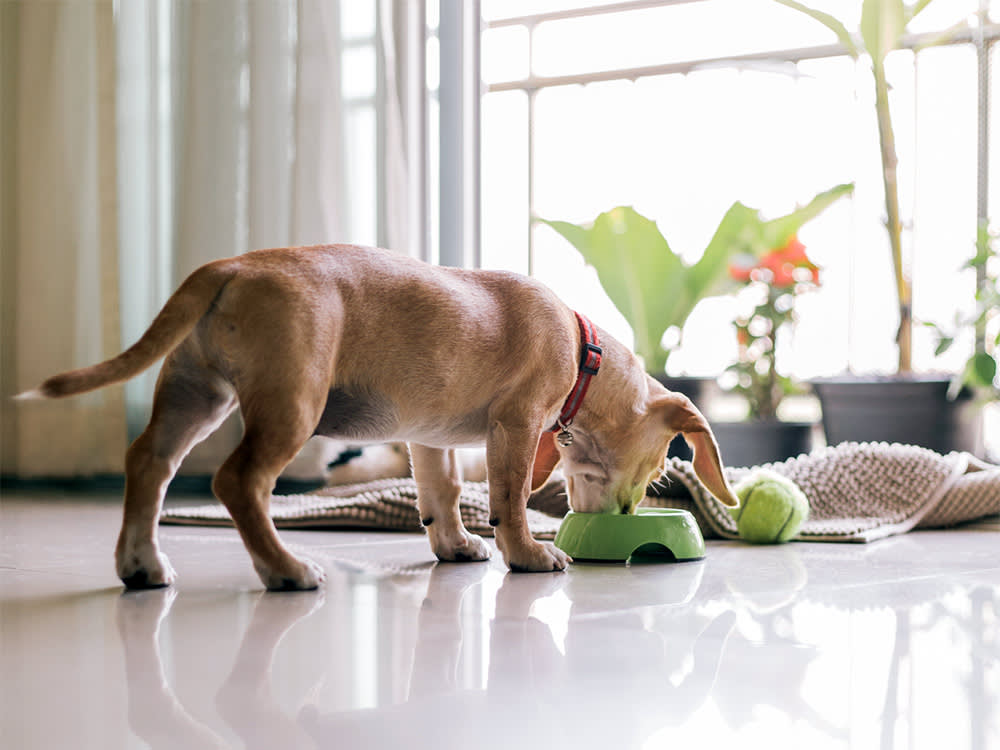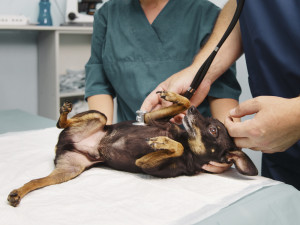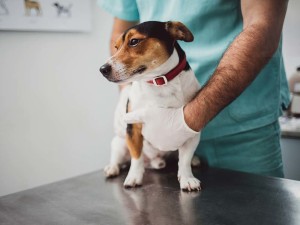Blue Ridge Beef Has Recalled Puppy and Kitten Food in These 16 States
Here’s what you need to know if you think your pet has been affected.

Share Article
The Blue Ridge Beef company has recalled some of its pet food in 16 states because of contamination of Salmonella and Listeria monocytogenes, per a statementopens in a new tab from the Federal Food and Drug Administration (FDA). The North Carolina-based pet company has recalled all lot numbers and used-by dates between N24 1114 to N24 1224 of Kitten Grindopens in a new tab (two-pound log), Kitten Mix opens in a new tab(two-pound log), and Puppy Mix opens in a new tab(two-pound log).
More info on the recall
On January 3, Blue Ridge included the following states in their recall: Connecticut, Florida, Iowa, Illinois, Massachusetts, Maryland, North Carolina, New York, Michigan, Ohio, Oregon, Pennsylvania, Rhode Island, Tennessee, Virginia, and Wisconsin. The original list of states, issued by the FDA on December 22, only included seven of the above.

littleKin™ is Kinship’s home just for puppy and kitten parents. Bop over to check out expert advice, new pet tools, and special deals—all curated for your newest family member.
opens in a new tabAll of the affected pet food was distributed between November 14, 2023 and December 20, 2023. Per the FDA, “the products were packaged in clear plastic and sold primarily in retail stores sold” in the 16 states. Look at the silver section on the end of the tube in which the food is stored to see if it contains one of the recalled lot numbers. For reference, the FDA has included photos of what to look for hereopens in a new tab.
Symptoms to watch for in your pet
“Pet parents worried that their puppy or kitten may be affected by Salmonella or Listeria from contaminated food should watch for early symptoms of intestinal upset, such as loss of appetite, diarrhea, vomiting, fever, lethargy, and abdominal pain,” veterinarian Dr. Bartley Harrison tells Kinship. “Pets who are more severely affected can develop symptoms of shock like pale gums, low blood pressure, and collapse due to the toxins made by the bacteria.”
The FDA statement advises pet parents to “wash and sanitize pet food bowls, cups, and storage containers. Always ensure you wash and sanitize your hands after handling recalled food or any utensils that come in contact with recalled food.”
How to report this
If you have purchased these products, please email blueridgebeefnc@yahoo.comopens in a new tab or call Steven Lea at (704)-880-4500 Monday through Friday 8:00 a.m. to 5:00 p.m. EST.

Hilary Weaver
Hilary Weaver is the senior editor at Kinship. She has previously been an editor at The Spruce Pets, ELLE, and The Cut. She was a staff writer at Vanity Fair from 2016 to 2019, and her work has been featured in Esquire, Refinery 29, BuzzFeed, Parade, and more. She lives with her herding pups, Georgie and Charlie.
Related articles
![Red-haired woman holding sleeping dog in her lap on the bed]() opens in a new tab
opens in a new tab6 Reasons Your Dog Is Vomiting
And how to help them feel better fast.
![feeding black dog rice water to help relieve diarrhea]() opens in a new tab
opens in a new tabVet-Approved Diarrhea Treatments
Shudder. It happens to all of us.
![A black dog with a tilted head looks attentively at the camera while sitting in grass.]() opens in a new tab
opens in a new tabIs My Dog’s Poop Normal?
From bloody poop to diarrhea—all your dog’s poop problems explained.
![Shiba inu dog sleeping in bed]() opens in a new tab
opens in a new tabMy Dog Sleeps All Day—Is That Normal?
Dogs need more sleep than humans. Here’s how much is healthy.
![A dog getting checked out at the vet]() opens in a new tab
opens in a new tabWhat to Expect At the Emergency Vet
It's every pet parent's nightmare — but knowing what happens when you take your dog to the ER can make the experience a little less stressful.
![Veterinarian examining a dog]() opens in a new tab
opens in a new tabMy Dog Has Diarrhea. Should I Call the Vet?
Certain symptoms could mean your dog is battling a potentially fatal condition called hemorrhagic gastroenteritis (HGE). Here’s everything you need to know.







